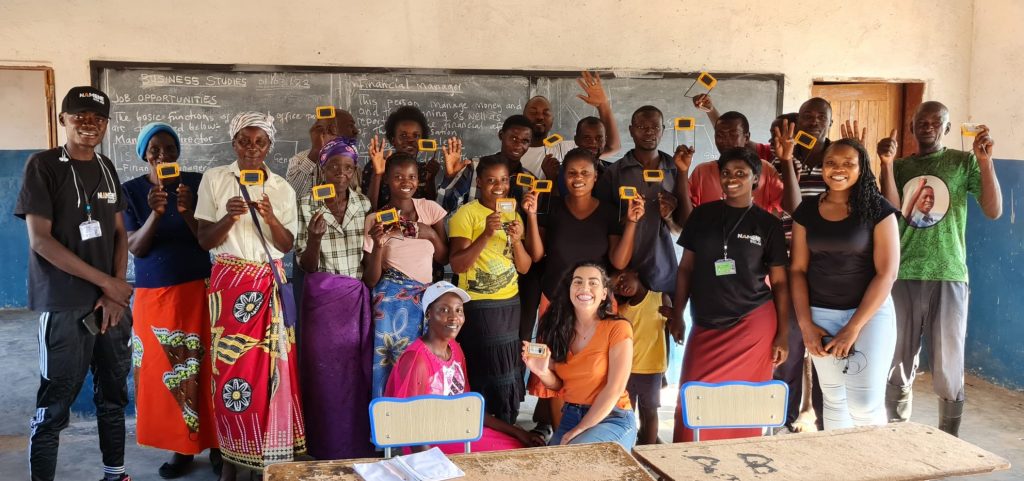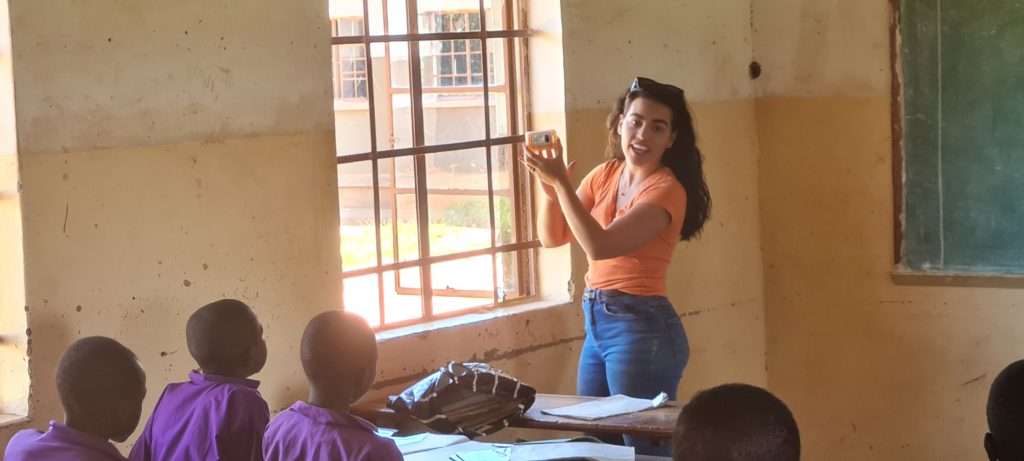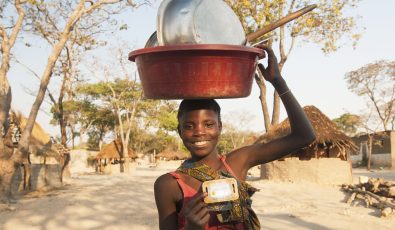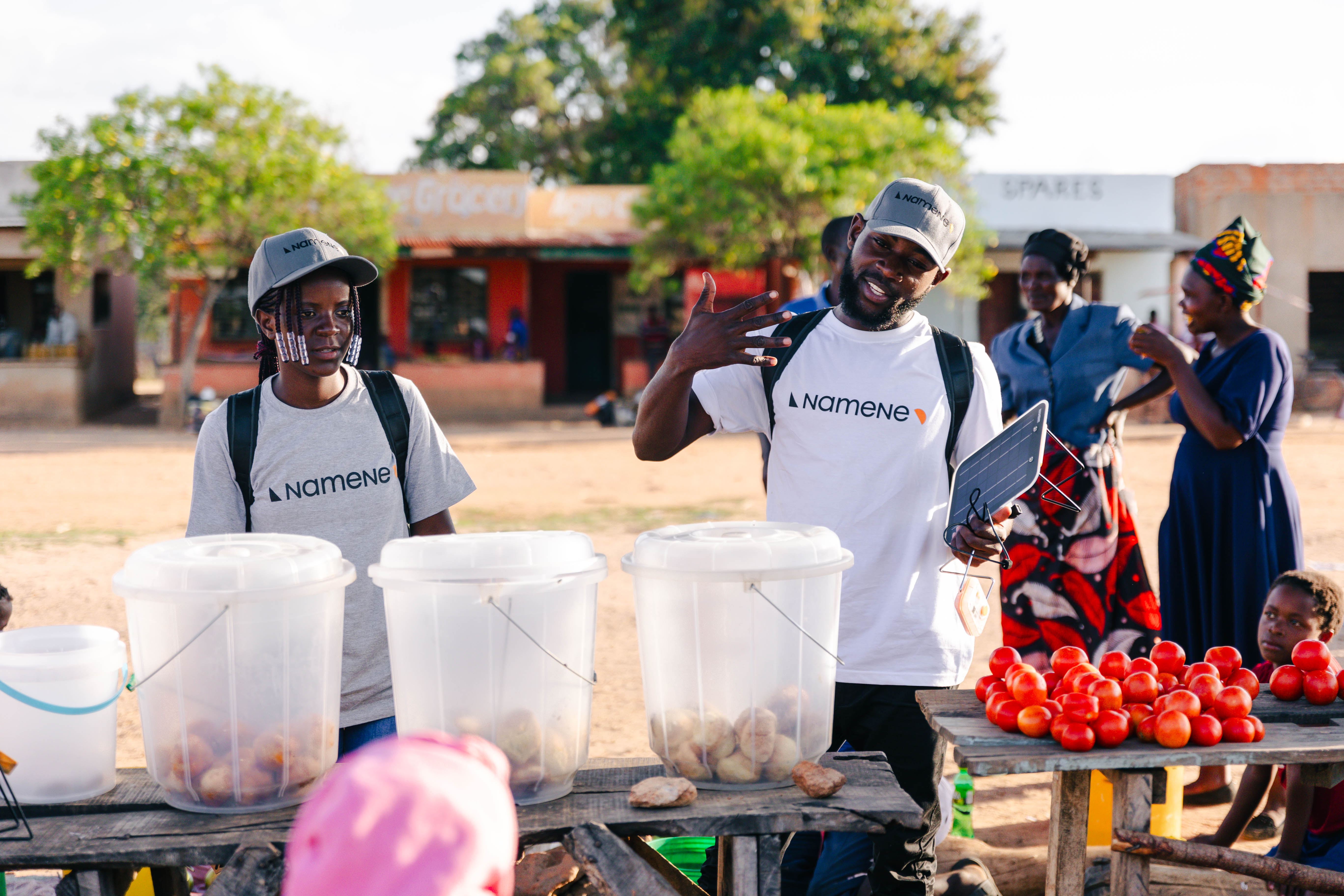First 150,000 solar lights distributed in Zambia climate project

Namene’s climate team in Zambia distributing lights at Nakeempa Primary School, Choma District in Southern Province
The lights have reached families across four provinces of Zambia, as part of Namene’s Gold Standard-certified carbon offsetting project and will replace emissions from kerosene lamps and other fossil fuel lighting.
Namene is celebrating a new milestone as 150,000 pico–solar lights have been distributed across rural areas of Zambia, where there is little or no access to electricity, benefitting over 80,000 households.
Since 2021, the Namene climate team in Zambia, have been working directly with local communities to distribute the solar lights to off-grid families,
This climate project aims to eradicate kerosene and fossil fuels used for lighting in rural communities across four provinces in Zambia, reaching up to 1.2 million people. The lights are life-changing for people with no energy access or intermittent power. They will now have a source of clean, renewable light to replace expensive, harmful fossil-fuel lighting, like the kerosene lamps they would normally rely on to light their essential activities after sunset.
Country Manager Chanda Mulenga said:
“It is great to have reached this incredible milestone, despite the challenge of COVID-19 causing some delayed shipments. This is a significant achievement in our solar lights distribution and it wouldn’t be possible without the hard work and commitment of the Namene team and our distribution partners, and their dedication to making a meaningful impact in local communities to improve lives and reduce emissions. Seeing the impact and transformation that a solar light can have in the hands of our customers is truly fulfilling”
The lights under Namene’s climate projects and the carbon emissions avoided generate Verified Emissions Reductions (VERs), certified by Gold Standard, that businesses and companies can purchase to offset their unavoidable emissions. By purchasing Namene’s VERs, companies are helping to make solar truly affordable for the first time for many off-grid families whilst contributing to their net zero goals.

Climate Projects Research and Training Associate demonstrates how to charge a solar light to school children in Zambia
Every light saves not only climate-heating emissions, but money for families too. In Zambia, 90% of the rural population live below the international extreme poverty line of less than $1.25 per day and less than 14% have access to electricity. With solar lights, children can study after dark without the risk of open-flame lighting or toxic pollution that can cause, sometimes fatal, respiratory diseases.
Having a free source of light from the sun, means they will no longer have to pay for paraffin and kerosene and they can step onto the clean energy ladder. Namene has climate projects in a number of countries in Sub-Saharan Africa, in a large-scale deployment of solar lights that combat energy poverty, reduce greenhouse gas emissions and allow companies to offset their unavoidable emissions with high-impact carbon credits.
Namene’s climate projects continue to grow, with operations already scaling in Namibia and Zimbabwe and plans for a number of other countries, pioneering the projects on a truly global scale. By working with local distribution companies Namene is able to reach last-mile homes and remote areas with affordable quality solar lights for the first time.
To find out more about Namene’s climate projects, enquire about distribution partnerships get in touch climate@namenesolar.com
For more information about the project in Zambia, download the data sheet here.
Related Stories

Drive Sustainable Change with Namene Carbon Credits
As the urgency of climate change grows, businesses can take responsibility for their emissions and meet sustainability goals with Namene's Carbon Credits.
Read More
Empower women to power Africa: women driving the energy transition
At Namene want to honour and champion the essential role women play by connecting their communities to energy access, becoming solar entrepreneurs and leading the charge in energy companies.
Read More
How Namene Does things Differently
Zambia Country Director, Chanda Mulenga shares lessons and strategies that have enabled our success deploying solar lights to some of the most remote communities.
Read More